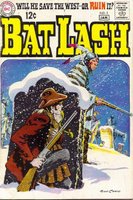But most of them do not have a well-developed secret identity, as we shall see. For instance consider Thor. The Thor series has a huge cast of characters: Odin, Balder, Sif, Heimdall, Loki, Karnilla, etc. But whatever happened to Don Blake? On a regular basis, Blake interacts with the following people:

As if that wasn't bad enough, Jane Foster disappeared from the series in early 1967, leaving nobody for Don Blake to interact with. Okay, Don Blake is kind of an oddity, apparently never having existed before Odin banished Thor to Earth, so it's not like the human side of his character was real. But what about Daredevil's Matt Murdock?

This is actually not all that atypical; whom did Clark Kent interact with other than the people in his office? Lana Lang is about it, and even she was more involved with Superman than his alter ego.
A somewhat similar situation applies with Bruce Banner/Hulk, although he does have a few more people in his life:

Tony Stark is pretty much the same:

Some of the Marvel characters don't lend themselves to an analysis like this. The Sub-Mariner, for example, does not have an alter ego; neither, arguably, do the Fantastic Four or Doctor Strange. Captain America's real identity of Steve Rogers was pretty much forgotten in the 1960s. The X-Men were self-contained.
So who's left? Oh, yes, Peter Parker. Here are the people Parker interacted with regularly:


Not to mention Liz Allen, Fredrick Foswell, Anna Watson, Ned Leeds, Joe Robertson's son, and numerous other characters that we may not (yet) have noticed were in the picture like Dr Bramwell and Professor Warren.
Don't get me wrong here; it's not that all these people make Peter Parker a more rounded character than any other in the Marvel lineup in the Silver Age. It's that they reflect how well-revealed Parker was to us. He's got family (Aunt May). He's got neighbors (Mrs Watson and Mary Jane). He's got a pal (Harry). He's got a love interest (Gwen). He's got a rival/enemy (Flash). He's got people he works with (JJJ, Betty, Robbie, Foswell). And the people he deals with have friends and relatives of their own (Captain Stacy, Robertson's son, Ned Leeds, Norman Osborne).
And I am not criticizing the other Marvel characters in favor of DC, as we shall see when I analyze the DC characters. Whom did Barry Allen interact with in the Silver Age? Iris and Wally West, and even Wally quickly became more of a companion for the Flash than Barry.
There's a logical reason for this as well; the more effort you put into characterization, the less time you have for plot. I have griped when reviewing some of the Spiderman Silver Age that at times the "Archie" aspect of the character interferes with the superheroics, but that's a tradeoff Stan was willing to make and which paid off handsomely for Marvel.





